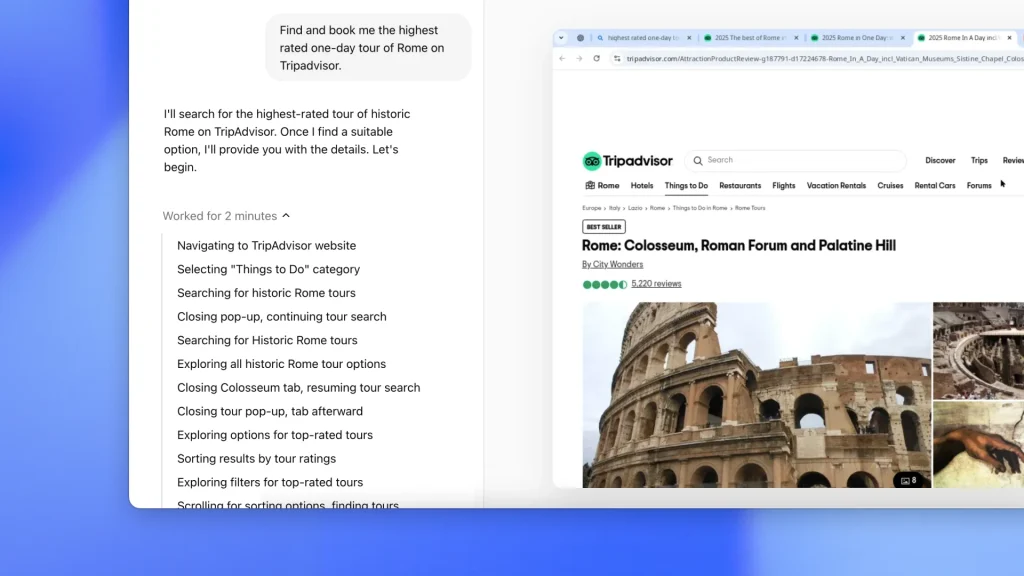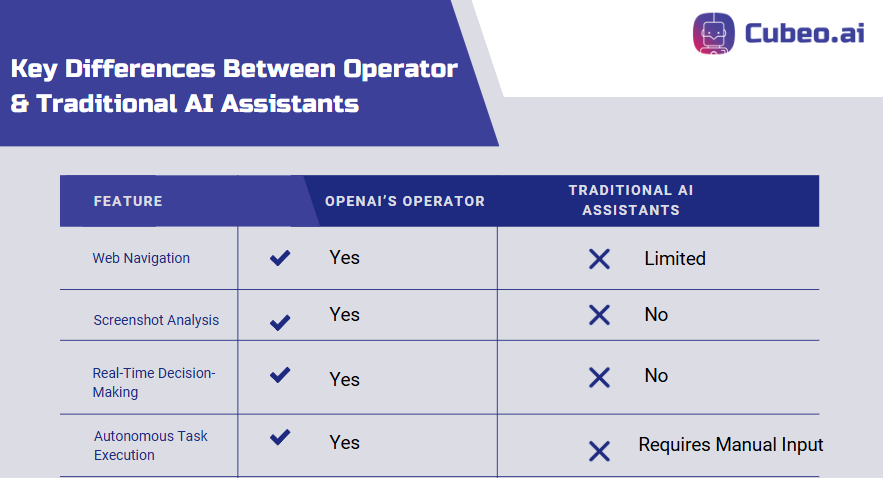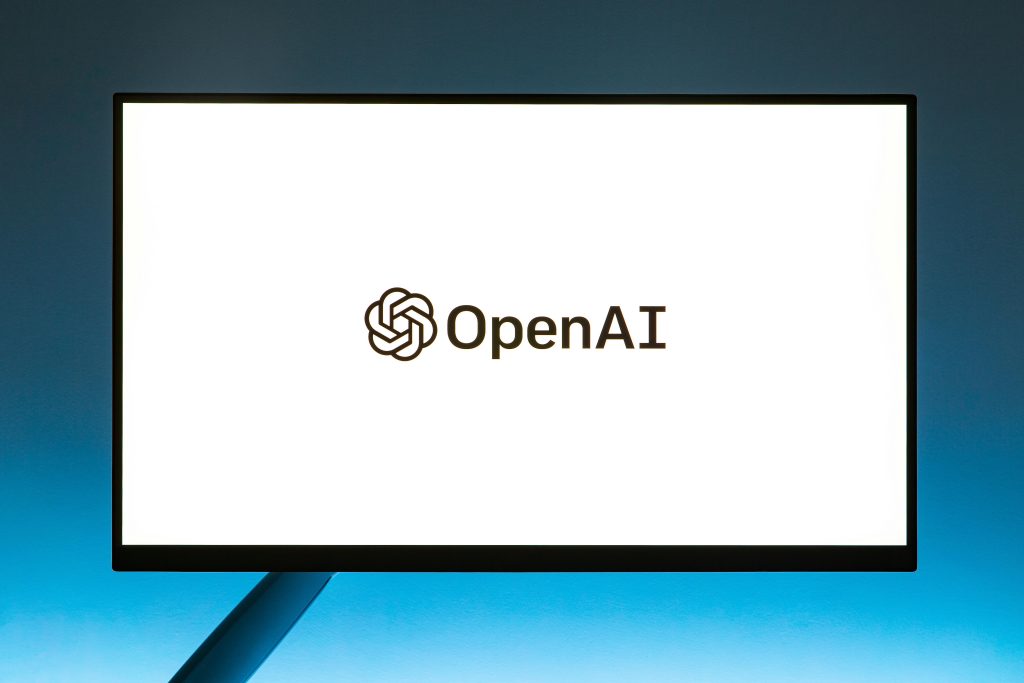OpenAI has introduced Operator, a groundbreaking AI agent designed to autonomously perform tasks on the web—from navigating websites to filling out forms and even making purchases. Unlike traditional AI assistants, Operator doesn’t just assist—it executes workflows independently, pushing AI automation to new heights.
With advanced reasoning and self-correction capabilities, Operator represents the next evolution of autonomous AI agents, alongside advancements from Google DeepMind, Anthropic, and Microsoft’s Copilot.
Table Of Contents
What is OpenAI’s Operator?
Operator is a next-generation AI agent that interacts with the web like a human user—navigating websites, filling out forms, and executing complex workflows without constant user input.

Key Features of OpenAI’s Operator
Autonomous Web Interaction – Operator can click buttons, scroll pages, fill forms, and extract data from web interfaces.
Task Execution & Workflow Automation – It automates routine digital tasks, including:
- Scheduling meetings
- Processing online transactions
- Managing customer support inquiries
Advanced AI Reasoning – Built on OpenAI’s “Computer-Using Agent” (CUA) model, Operator can:
- Analyze screenshots and interface layouts
- Make real-time decisions based on dynamic content
- Adapt to changing user inputs
User Confirmation for Secure Tasks – For sensitive actions like login credentials and financial transactions, Operator requires explicit user approval, ensuring security and control.
Self-Correction & Learning – Operator detects errors in real-time and adjusts to ensure accurate task execution.
Third-Party Platform Collaborations – OpenAI is working on potential integrations with:
However, these partnerships are not required—Operator can function independently across various platforms.

How Businesses Can Leverage OpenAI’s Operator
The launch of Operator introduces game-changing AI automation across industries:
- E-commerce – Automating order processing, customer service, and inventory checks. See how AI is reshaping retail.
- Finance – Handling expense tracking, fraud detection, and compliance automation. Explore AI’s role in financial automation.
- Customer Support – Managing chatbots & automated ticketing systems for 24/7 assistance.
- HR & Recruitment – AI-powered hiring, onboarding, and employee analytics. Read more about AI in HR.
Ready to integrate AI into your business operations?
Challenges & Ethical Considerations
While Operator is a powerful AI tool, its rise brings new challenges:
- AI Autonomy & Human Oversight – Who is responsible for AI-driven decisions?
- Data Privacy & Security – With AI managing financial transactions and login credentials, how will OpenAI ensure data protection?
- Regulatory Compliance – With AI laws like the EU AI Act and FTC AI regulations, businesses must navigate AI governance carefully.
As AI advances, companies must adopt clear guidelines for responsible AI use.
What’s Next for OpenAI & AI-Powered Task Automation?
As AI-powered agents become more advanced, expect:
- Enterprise AI Adoption – AI agents like Operator will streamline operations across industries.
- Deeper AI Integration – Future versions may integrate into platforms like Salesforce for CRM automation.
- Ethical AI Governance – Expect more discussions around AI regulation & bias prevention.
Final Thoughts
OpenAI’s Operator marks a major milestone in AI-powered automation, offering businesses the ability to execute complex workflows autonomously.
With real-time reasoning, adaptive web navigation, and secure task execution, Operator represents a powerful step toward AI-driven efficiency.
As AI automation continues to transform industries, businesses must act now to stay ahead of the competition.



